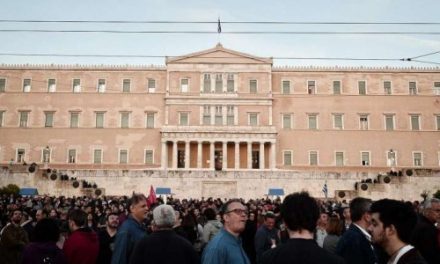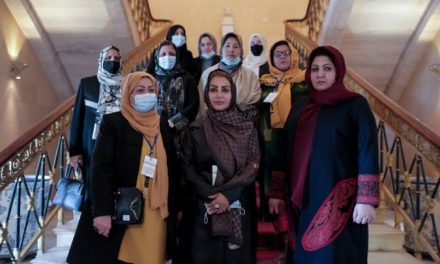diaNEOsis is a non-profit think-tank founded in 2016 and based in Athens, Greece. The institute publishes academic research, policy recommendations and investigative journalism, “aiming to contribute meaningful arguments and data to the public discourse and promote policies that can lead to economic growth, while protecting social cohesion”. diaNEOsis’ activities are overseen by a 30-member Advisory Board, as well as a 9-member Supervisory Board presided by art collector, former chairman of the Hellenic Federation of Enterprises and Damma Holdings SA President and CEO, Dimitris Daskalopoulos.
A new study carried out on behalf of diaNEOsis in collaboration with ELIAMEP (Hellenic Foundation for European and Foreign Policy) by a team of researchers under the coordination of Georgos Pagoulatos, Professor of European Politics and Economy at the Department of International & European Economic Studies, Athens University of Economics & Business, lists 31 concrete policy proposals that our country could present, support and co-design at European Union institutions.
Proposals include, for example, policies dealing with economic crises and more effective convergence of the Eurozone economies; a “golden rule”, for instance, exempting specific investment expenditures from budget deficit and public debt calculations of Member States that are in recession, so that they can positively progress towards exiting the recession, and at the same time a European Investment Protection Fund for the temporary financing of public investment in affected countries; an “Economic Convergence Code” and a “Social Convergence Code” that will promote the convergence of European economies and intervene in the event of rapid deterioration of critical indicators; a single budget for Eurozone countries or, alternatively, a Macroeconomic Stabilization Fund for these countries; a European system managed by the European Commission to support the unemployed in countries with very high unemployment, such as the southern Member States, with employment policies, unemployment reinsurance and special allowances; government bonds with a growth clause; a European Asset Management Company for Red Loans.
Additionally, they propose a range of new policies on other economic issues that are in Greece’s interest, such as strengthening the role of the European Investment Bank, a common consolidated corporate tax base, and the convergence of corporate capital tax rates. As the researchers note, “any effort to consolidate the tax framework directly benefits Greece”.
At the same time, as the Common Agricultural Policy (CAP) is being redesigned, researchers believe that Greece would need to request new support schemes for specific groups (young farmers, small producers, areas with natural constraints) as well as support for “precision farming” that can dramatically increase the problematic agricultural productivity of the country.
Greece should also press for the acceleration of the EU energy union, a much-delayed consolidation. The interconnection of the energy networks of our country with the rest of the EU (with Italy and Bulgaria) would help reduce energy costs for Greek industry. Moreover, our country will have to push for the creation of a fund to combat the effects of the phasing out of lignite: the paper calls it “Fair Transition Fund”, setting it at around 8 billion euros for the 2020s. It also proposes the creation of a Digital Convergence Fund for the improvement of digital infrastructures especially in countries lagging behind; the rapid expansion of the Erasmus + programme; the pan-European certification of educational institutions and instructors in vocational training programmes; the drafting of a European Code of Principles and Values for the public administration of all Member States; the creation of a platform bringing together all the studies funded from European or national resources; the establishment of a “European Solidarity Body” on disaster response and crisis management, actions for the social integration of migrants and refugees, and the creation of an Immigration Policy Council; and the creation of a European Security Council for coordinated policy making on security and migration issues. On the subject of common defense, there are, among others, concrete proposals for the creation of a permanent European naval force in the Eastern Mediterranean, the strengthening of the European Defense Fund and the creation of an administrative support base in Crete.
They also propose the portability of European citizens’ pension entitlements so that workers can secure their rights wherever they are working in the EU, and a European Retirement Pension Programme. This is an important issue for the EU, if it really wants to complete the integration of the European labour market, but it is even more important for our country, as it would provide an additional incentive for the repatriation of human resources who migrated during the crisis.
These proposals have emerged from the evaluation of other studies carried out in recent years by governments, think-tanks and EU bodies, but also following more than 50 interviews with experts, technocrats and officials with deep knowledge of the functioning of European institutions and the shaping of European policy. These proposals were specifically chosen because they are of Greek interest, but also because they are realistic, based on discussions and deliberations already happening, and do not require a revision of EU Treaties. Of course, not all of them are so easy or even likely to be realized. However, they are a valuable toolbox for any Greek government that wants to take advantage of the possibilities offered by its participation in the EU, and for any minister who wants to go to the Council of the European Union with concrete proposals foprogrammes and actions that could be crucial for our country (but also for other countries, especially the European South).
“By highlighting these issues in Greek and European Dialogue,” researchers point out in the survey, “we seek to influence Greece’s interest in this great pan-European consultation process that is in progress.”
Translation: Magda Hatzopoulos
Read also: The full paper (in Greek), all recent diaNEOsis research (in Greek).
F.K.














